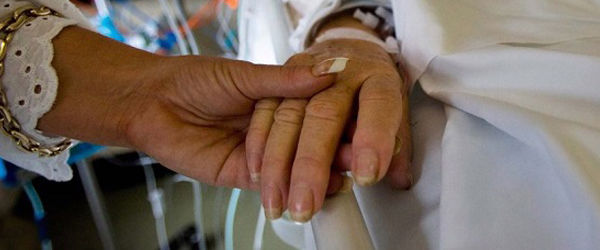As a cosmetologist working for a renowned beauty company about 12 years ago, Lourdes Castillo was far from imagining one day she would be part of the higher end of the Catholic Church’s spiritual formation chain.It was not a smooth process (“Many tears dropped,” she admits), although it was helpful having the support of her husband Eduardo Castillo, who was ordained a deacon in July.Sitting on the front row of the center set of pews of the Cathedral of Our Lady of the Angels, the Moorpark’s Holy Cross parishioner was focused on Archbishop José Gomez’s words despite the excitement (and stress) of the moment. She was about to receive her certificate as a Master Catechist, together with 18 others, including Eucharist Franciscan Missionary Sister Clara Bolanos, the only religious in the group. They were the top group of the 1,653 catechists commissioned Sept. 18 by Archbishop Gomez.“Catechism is not about us, it’s about Jesus Christ,” Archbishop Gomez told a standing-room only assembly. It was his first time presiding at the ceremony. “It is an honor and solemn responsibility; [it is] a beauty to always be faithful, testing out the Lord’s teachings. It’s always about what Jesus Christ taught and continues to preach through the Holy Spirit, through the Pope, the bishops and the priests.”“No son ustedes el mensaje sino el mensajero (You’re not the message, but the messenger,)” he remarked.He encouraged the lay leaders to stay close to their teachers “such as the apostles did” and close to Jesus every single day, “breathing his word” and learning his example through the Gospels. “Listen to His words with the same sense of awe,” he said.He urged the assembly to follow the example of the apostles by asking Jesus everything they would like to know in order to improve their work.“Ask Him to get across the message to the people of our time.”Then he suggested making a resolution to pray, to spend time with Jesus, to listen to Him and to make an effort to read spiritual literature, namely the Gospels and the catechism of the Catholic Church.The archbishop also stressed the importance of “knowing how the Holy Spirit works in our lives” and enhancing the knowledge of the gifts of the Holy Spirit learned in confirmation.“Catechesis is a work of the Holy Spirit,” he said. “Necesitamos inspiraciones del Espíritu Santo (We need to get inspired by the Holy Spirit) who never gets tired of teaching us.”Sister Bolanos also paid careful attention.Although being the former catechist director for the Diocese of Stockton, she said the two-year formation (a requirement she needed to fulfill when she moved to work at the Archdiocese of Los Angeles) helped her “refine” her knowledge and stay open to challenges.Our Lady of the Assumption (Claremont) member and teacher Sandra Columbus said the master catechism formation had helped her better understand the “true doctrine” of the Church and “forget what I learned from my grandma.”“Now I know Christology better; I know how to interpret the Bible better as well as theology and all the Vatican II documents.”She has noticed she has turned into a better person and a better teacher, she said. “Now I have concrete answers to questions from my [junior high] students regarding issues such as abortion or anything concerning Catholic teachings.”“This has helped me flip the coin; see things in other ways with an open mind,” said Javier Nuno, a parishioner at Our Lady of Peace Church in North Hills. He received a certificate for completing biblical studies. “You learn to apply everything in your own life and to put everything in perspective,” said the youth minister.“Keep moving forward,” Martha O. Cándido told Nuno. She was commissioned as a catechist in 2000 and later as a pastoral agent.“God is huge and he wants us to move forward and has many beautiful things in store for us,” she added.Since starting her formation, she shared, she has gained energy and developed skills to make necessary changes in her life, thus contributing to the life of the Church. Backed by her pastor, a few years back she founded a group for divorced people who have suffered abuse and abandonment from their spouse, like herself.Cándido and Nuno concurred that the church is taking a very positive turn by increasing the laity’s involvement in parish leadership.“There’s more openness, but still more needs to be done and that’s up to us,” Cándido said, “it’s about commitment.”And Castillo is committed. “I am just God’s instrument,” she reflected. She says her best catechism practice is at the medical clinic where she works as a medical assistant.The doctor she works for is Jewish and most of the patients as well, but not a day goes by when a patient asks her to pray for her/him before leaving the clinic. “I don’t know why,” she says, humbly, “I guess they see something in me because they know I’m Catholic.”During her formation she developed speaking skills as well, something she would like to enhance even more. Most challenging of all, she admits, was balancing the time spent in formation with her primary vocation: marriage and family. She is the mother of a college student and two high school students.“God just wants us to do little acts of charity and love, the opposite of today’s society values,” she noted. “That’s why I like [Blessed] Mary’s silence. You don’t have to say a lot.”{gallery width=100 height=100}gallery/2011/0923/catechists/{/gallery}

